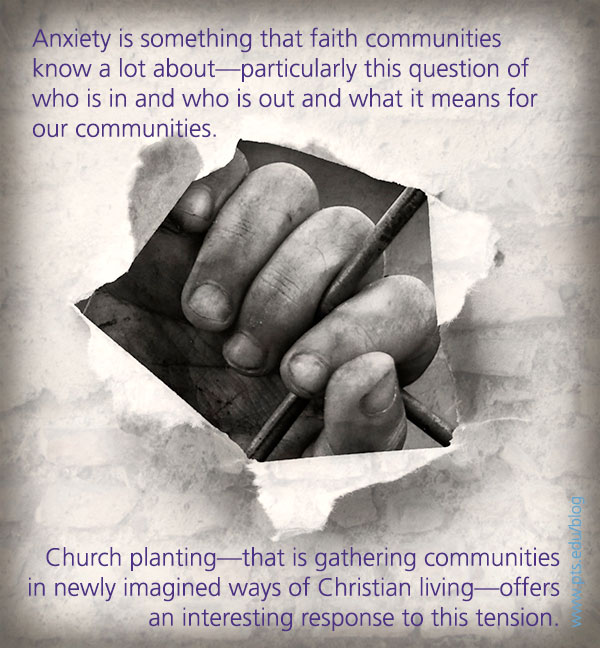Even hundreds of miles from the coasts, here in Pittsburgh, we are hearing a lot about borders and walls, citizenship and belonging, laws and trespasses. There is anxiety in the air—who are we as a country, and what is our relationship to those who come across our borders? Who are “we” and who are “they” and how will we meet each other?
Respectable Sheep and Unruly Goats
Anxiety is something that faith communities know a lot about—particularly this question of who is in and who is out and what it means for our communities. In fact, unfortunately the church is famous for it. Misuse of Matthew 25:31-34 results in the (now vintage) Cake song’s poetic simplification, “Sheep go to heaven, goats go to hell.” Somehow that simple statement comes with a clear imagination of who are the respectable sheep and who are the unruly goats. This misses, of course, that the distinction the text makes between sheep and goats is how they live, not where they were born or to whom they were born (see verse 35-41).
Church Planting and the Refugee Crisis
Church planting—that is gathering communities in newly imagined ways of Christian living—offers an interesting response to this tension. What if, instead of gathering as those who are “already” sheep, we gather around the “sheep-like” practices: giving food to the hungry, welcoming the stranger, clothing the naked, caring for the sick, and visiting the imprisoned? Can we become sheep in those practices? What will this mean for the space where we meet each other? Well, it may be that we become the hungry in our sharing. We may gather together as strangers and share life with the underclad. We may get sick with germs from the sick, and we may even become imprisoned or count the incarcerated as our members.
In short, mixing it up with the world by starting outside of an established group of Christians, there are ways in which we might start to look like the world outside our boundaries. We might begin to resemble those we might feed or cloth or welcome or visit in prison. Which can feel pretty scary. But if you look back—that needy and scary world outside from Matthew 25—that world we might loathe to become is finally concluded to house the presence of the Christ we claim to serve. The same Christ we say we are trying to imitate.
The Rev. Karen Rohrer, M.Div. is the director of the Church Planting Initiative at Pittsburgh Theological Seminary, founding co-pastor of Beacon Church in Philadelphia, Pa., and, as it turns out, a real Cake fan ever since they were cool 20 years ago.


Thank you Karen,
Incarnation must have been an uncomfortably messy experience for the Son.
Bedbugs, cockroaches, smells and language that are unusual and uncomfortable await middle / upper class in incarnating experiences. I wonder about those that are already present? And then what are the joys that await?
Thank you for this information.